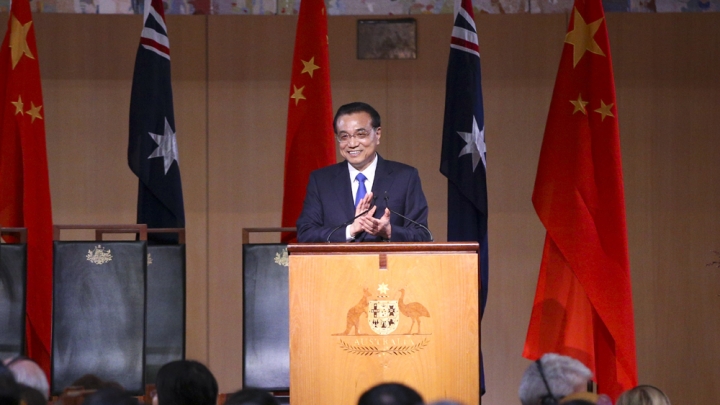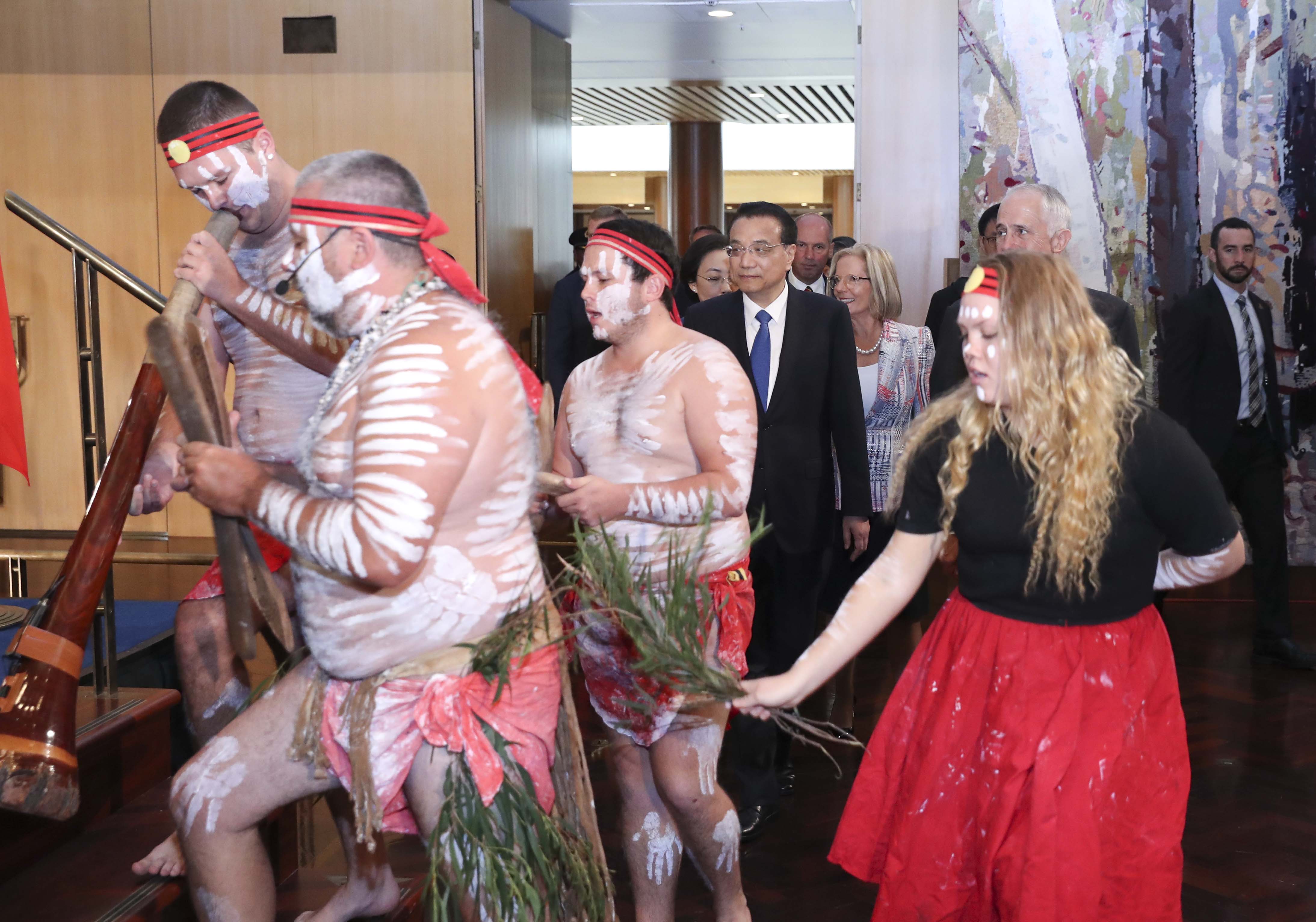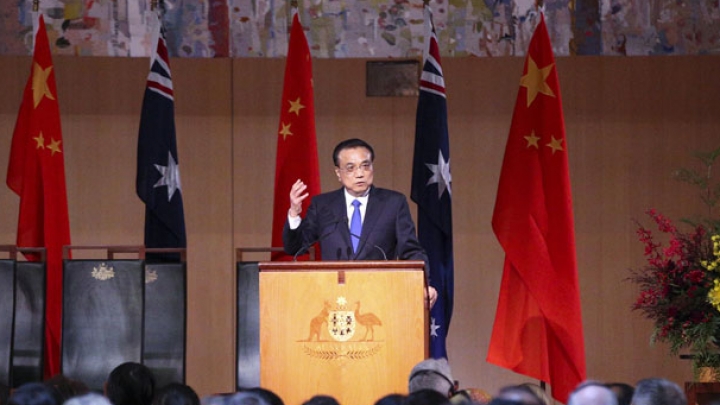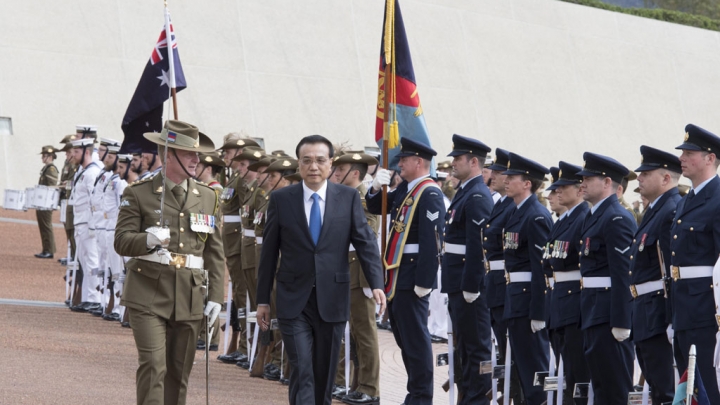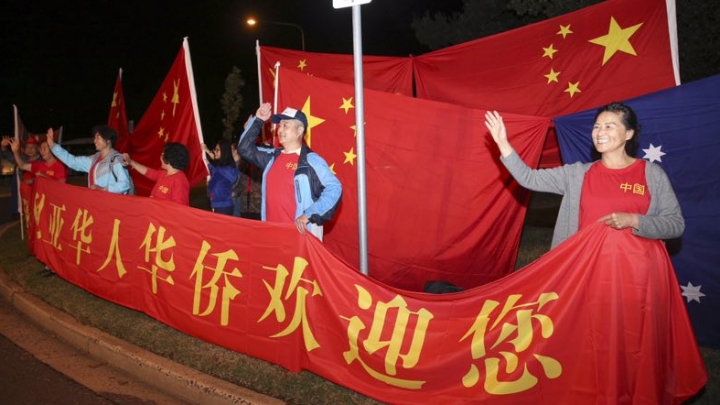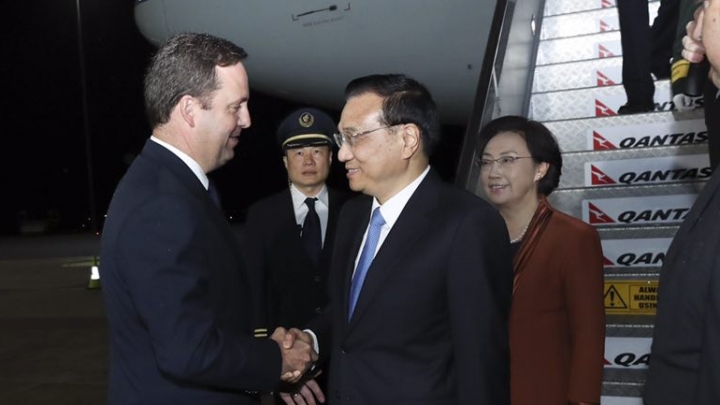Trade dominates Chinese premier's 1st day of Australia visit
![Chinese Premier Li Keqiang (R) and Australian Prime Minister Malcolm Turnbull hold talks in Canberra, Australia, March 23, 2017. [Photo: Xinhua/Pang Xinglei]](https://chinaplus.cri.cn/images/201703/23/17d85ba7-1251-1e05-4930-9ae26d3e0f40.jpg)
Chinese Premier Li Keqiang (R) and Australian Prime Minister Malcolm Turnbull hold talks in Canberra, Australia, March 23, 2017. [Photo: Xinhua/Pang Xinglei]
Trade has dominated the first day of the four day visit to Australia by China's premier Li Keqiang.
Addressing Australian lawmakers during an official lunch, Premier Li spoke of the opportunities that had been presented by the free trade agreement that came into force in 2015, and of his hopes for the future. But he warned against the growing danger of protectionism.
Li Keqiang also emphasized that China didn't want to see a new Cold War develop out of the situation in the South China Sea.
In advance of his trip, The Australian newspaper, perhaps tong-in-cheek, suggested that Premier Li was coming to Australia with an eye on the beef market. Earlier in the day, China confirmed that it had suspended imports of beef from Brazil, following reports its meat-packing industry had bribed officials to allow the sale of expired meat.
It's believed Australian beef producers are seeking to take advantage of China's decision.
Li Keqiang picked up the reference at the start of his lunch address at Parliament House in Canberra, raising a laugh by joking:
"So when I looked at the menu, I asked 'Is beef on the menu today?' and he said 'No, we have chicken for you."
But taking a more serious tone, Premier Li stressed beef and chicken were not the only thing he was looking for in Australia adding, "I come here for free trade."
China and Australia signed a wide-ranging free trade agreement in 2015, a move which solidified China's position as Australia's biggest trading partner.
Officials from the two sides have implied further trade liberalization measures under the agreement will be announced during Li's visit.
China's official figures show the country had around 50 billion US dollars of trade deficit with Australia last year.
Premier Li underlined that the expansion of free trade was the right way to redress the imbalance.
"In the world, protectionism is rising and there are more voices against economic globalization. We cannot deny that in the process of globalization, indeed, for some parts of the world, for some people, for some countries, there are some problems. But this is not the issue of globalization per se, it is not an issue of free trade, but it is all about how to respond to it," said Li.
Australia sold some 60 billion US dollars of agriculture-dominated goods to China in 2016, accounting for more than 30 percent of the country's entire exports.
Hosting his Chinese counterpart, Prime Minister, Malcolm Turnbull, said his country would be happy to see the volume further enlarged.
"Now China must feed 20 per cent of the world's population but has only 7 per cent of the world's arable land. Its middle class is growing at a staggering rate and Australia is seizing the historic opportunity to provide the high quality, safe food and beverages, consumer goods, high-end services of every kind to meet China's needs in this century." Turnbull said.
Beyond trade, Premier Li also touched on China's pursuit of a peaceful, independent foreign policy.
He suggested China didn't want to see countries which are not directly involved "take sides, as happened during the Cold War" in a clear reference to the South China Sea issue.
The comment came a week or so after Australian Foreign Minister Julie Bishop appeared to attack China in a harshly-worded speech made in Singapore.
On his first day in Australia, Premier Li Keqiang also met with the Australian Governor-General Sir Peter Cosgrove and opposition Labor Party leader Bill Shorten in Canberra.
